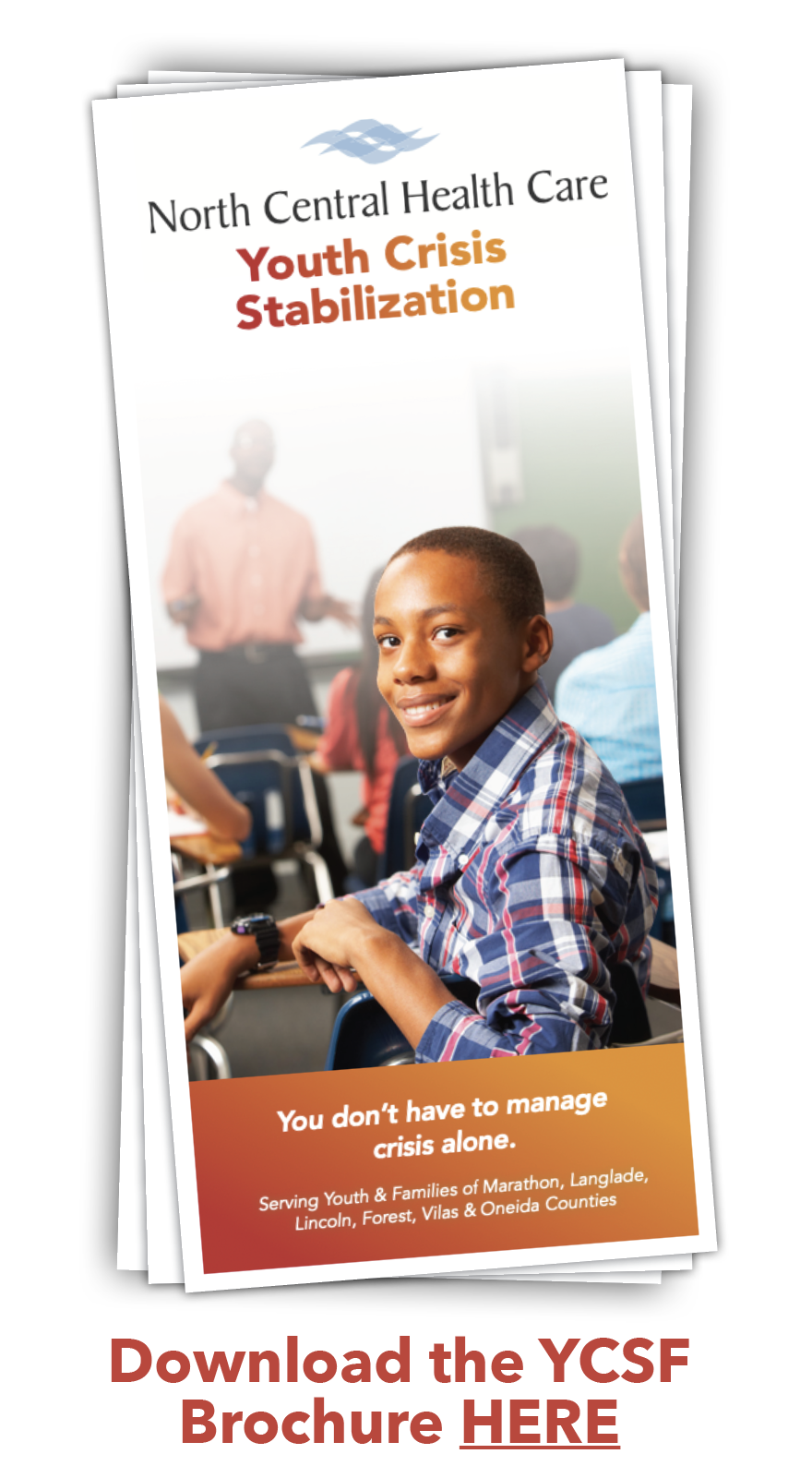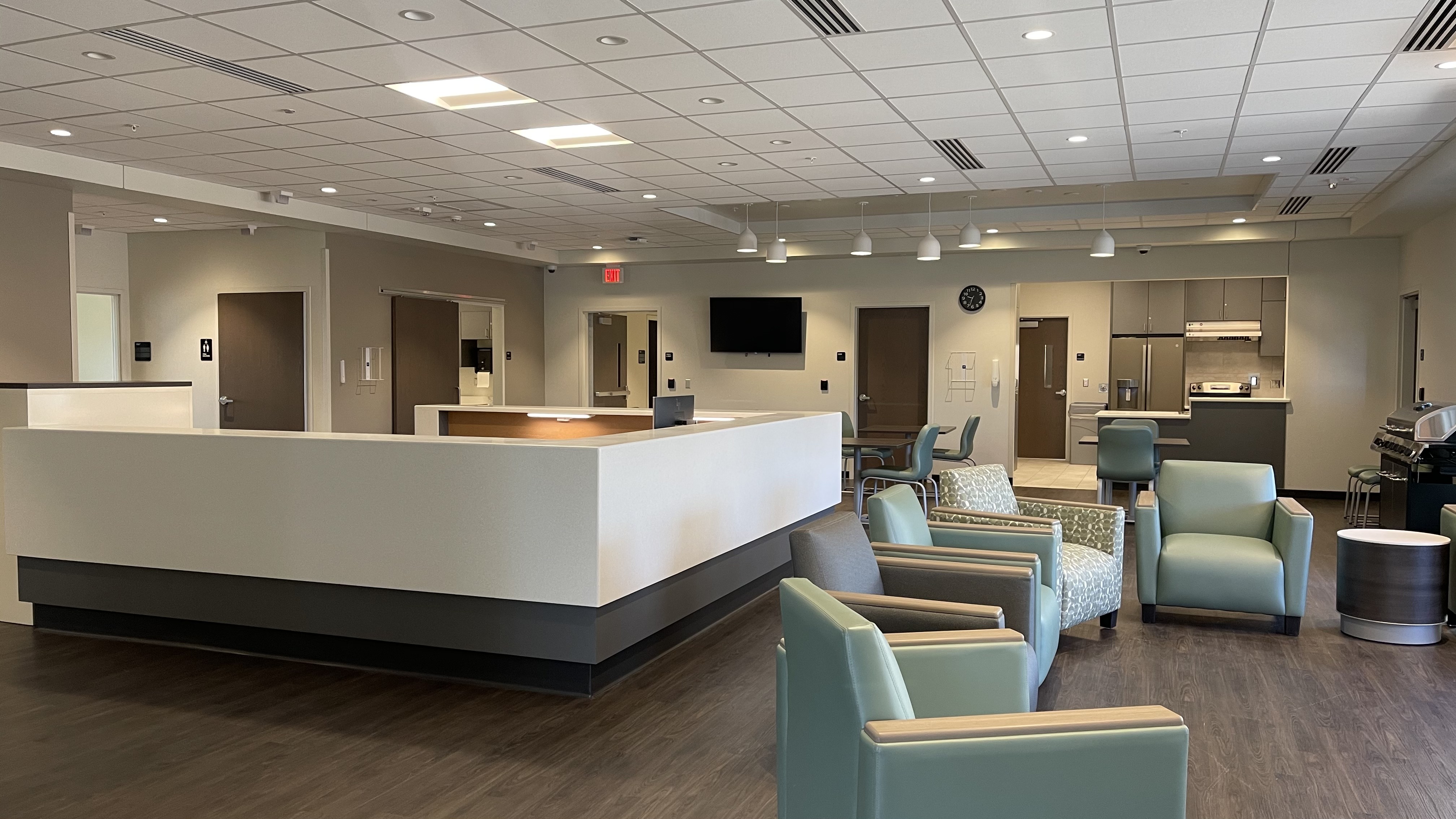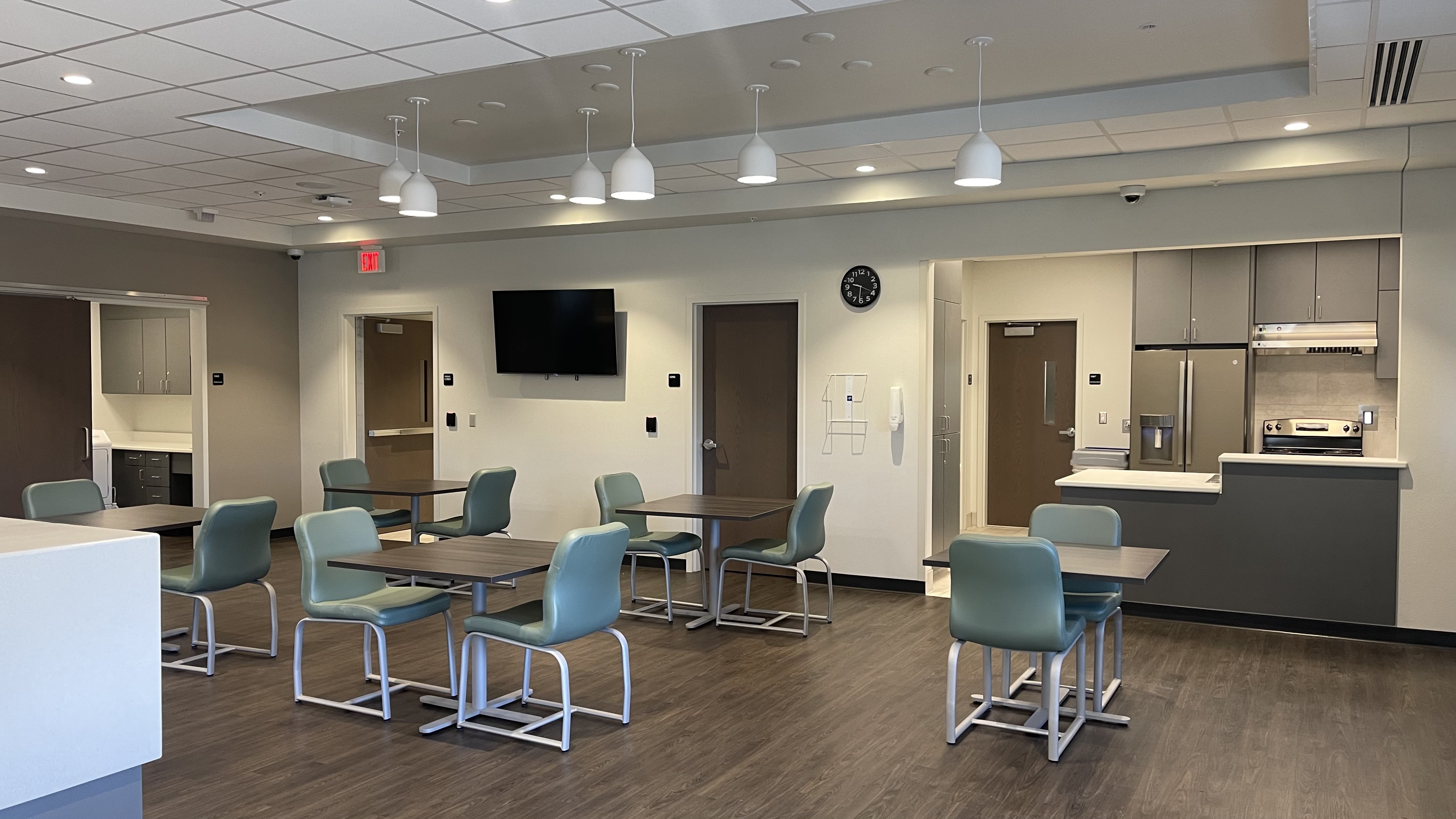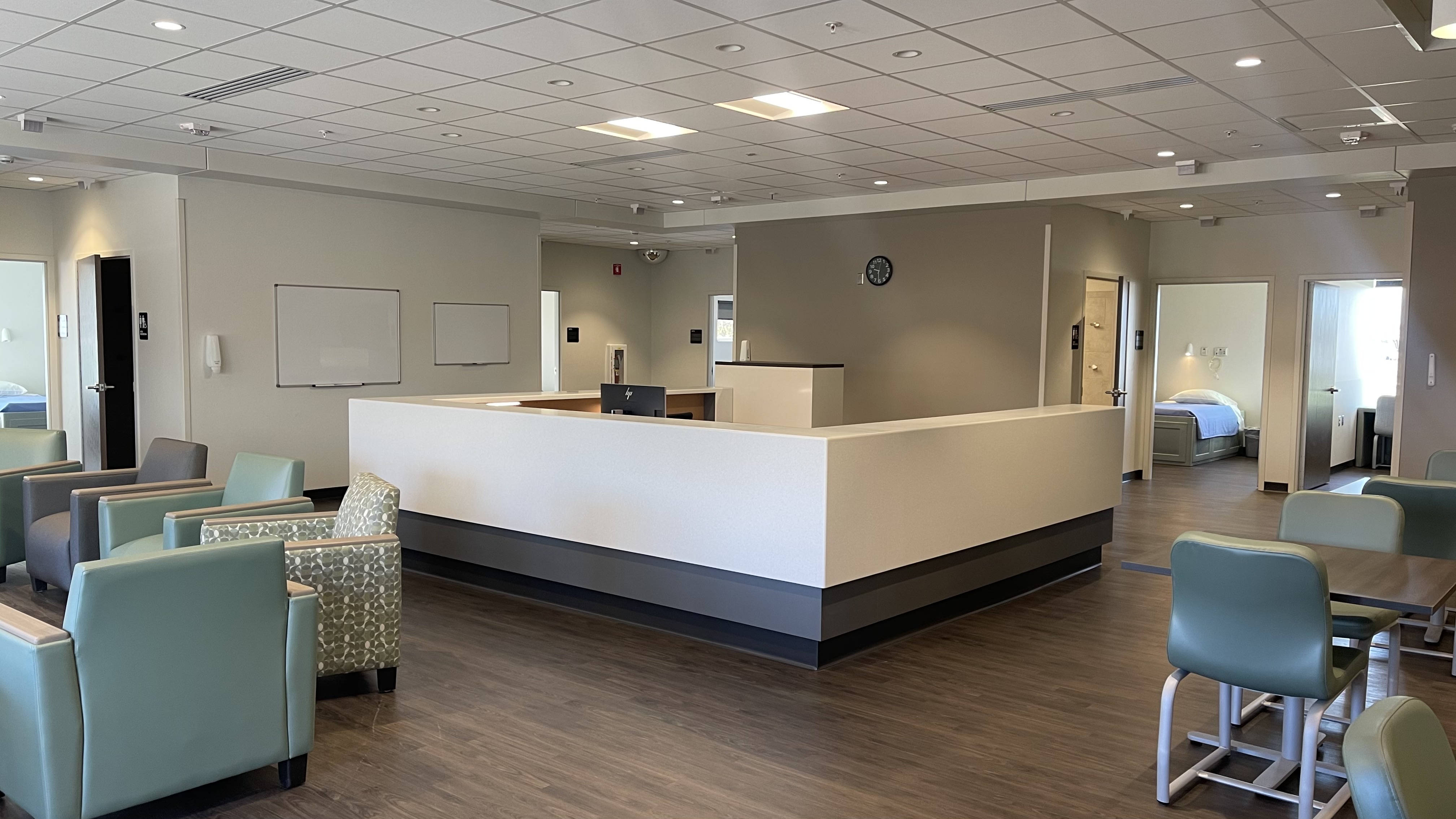Youth Crisis Stabilization Facility (YCSF)
 Our youth need our support — a community that will help them navigate
social, familial and educational pressures, assist them in beating substance
use, and prevent suicide or abuse. North Central Health Care is that support
resource and has a variety of programming available to assist in youth
mental and behavioral health care.
Our youth need our support — a community that will help them navigate
social, familial and educational pressures, assist them in beating substance
use, and prevent suicide or abuse. North Central Health Care is that support
resource and has a variety of programming available to assist in youth
mental and behavioral health care.
Youth Crisis Stabilization Facility Overview
North Central Health Care’s Youth Crisis Stabilization Facility is the first step in life-changing care and treatment for young people of any age who are experiencing a mental health crisis. Under the direction of a Clinical Supervisor, our program provides 24-hour care in a warm and welcoming setting. The Youth Crisis Stabilization Facility provides short-term therapeutic interventions to reduce and stabilize a person's crisis and link them to other resources and supports.
Length of stay depends on each person's needs, but services are designed to be short-term, approximately 3-5 days. Treatment includes regularly scheduled evidenced-based group and individual therapy and a variety of skill-building and educational groups.
Most admissions to the Youth Hospital will be referred from the Crisis Center. Planned stays, or BTIs (Brief Therapeutic Interventions) may also be requested by contacting the Crisis Center.
Looking for a more clinical youth inpatient option? Check out theNCHC Youth Behavioral Health Hospital.
No One Should Be Left to Struggle Alone
Adolescence is a difficult time. This is where most children start developing their identity and independence, and while this is liberating, it can also be stressful and put pressure on relationships with friends and family. Depression in youth in America is on the rise. A reported 12% of youth in America experienced at least one major depressive symptom, and the estimate for unreported incidents are much higher. Though difficulty during adolescence is normal, there are far too many instances where people who need help are dismissed because it’s “part of growing up.”
Some examples of youth crisis include:
- Talk of suicide
- Eating disorders (anorexia, bulimia, binge eating, etc.)
- Drug and/or alcohol abuse
- Bullying
- Threats of violence
- Difficulty in school
- Cyber bullying
- Feelings of ennui (Nothing matters. I feel bad all the time. Nothing will help.)
Many youth feel more comfortable speaking online, and while there may be exaggeration in some cases, any comment that mentions suicide or an act of violence is not to be taken lightly. Likewise, consistently depressive statements made online should also be taken seriously.
Emergency/Crisis numbers:
- 800.799.0122: Toll-Free Call connecting you to Crisis Support in the Marathon, Langlade and Lincoln Counties.
- 715.845.4326: Connecting you to Crisis Support in Marathon, Langlade and Lincoln Counties.
- 988 - National Suicide & Crisis Hotline connecting you to assistance in U.S. This number is not a direct dial to NCHC Crisis Services.
-
For those with hearing or speech difficulties, please dial 711 to connect
with the WI Relay Service.
When you dial 711, a communications assistant will connect you with the NCHC Crisis Hotline. Please provide the operator with the number 715.845.4326. English and Spanish translation is available through 711. For more information about 711, please visit WI Relay 711. - 800.273.TALK (8255): National Hotline will link you with Crisis Care in any area in the United States.



